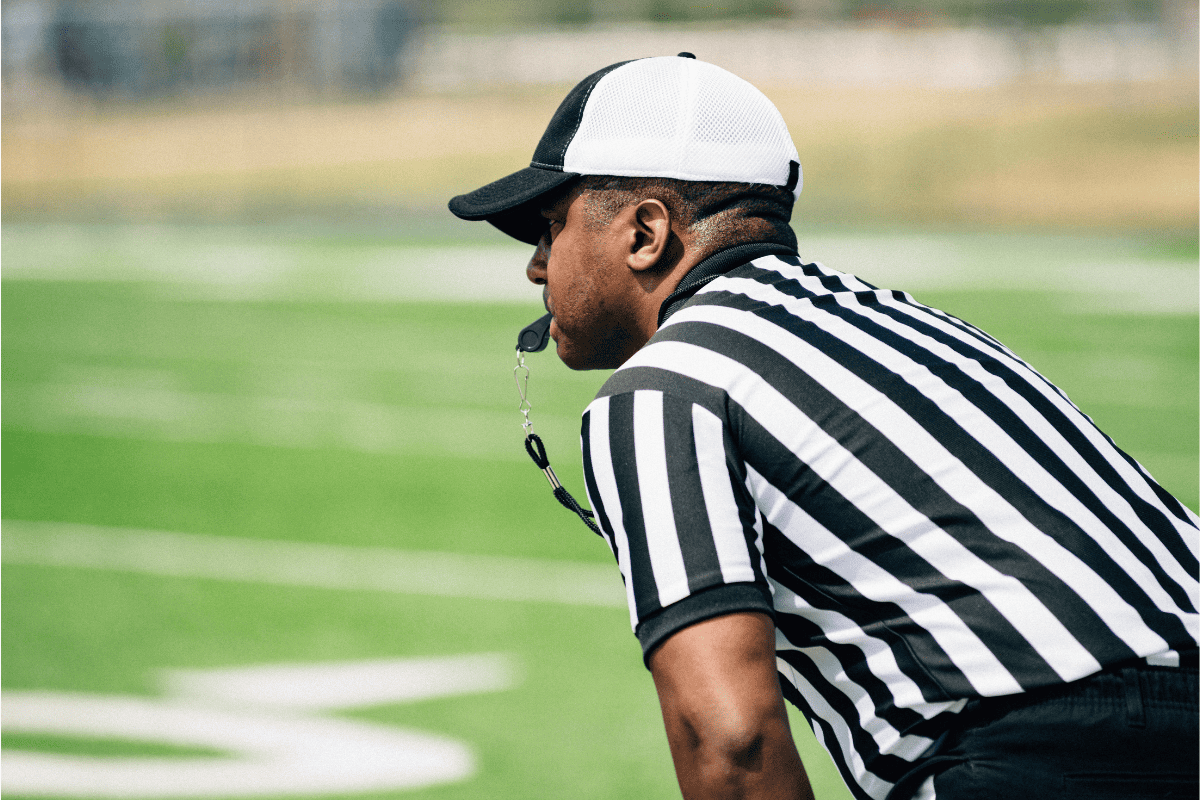What is a Dead Ball Penalty in Football?
Welcome, football enthusiasts and curious minds! Whether you’re a seasoned fan or a newcomer to the vibrant world of football, understanding its rules, especially regarding penalties, enhances the thrill of watching or playing the game.
Today, let’s delve into one specific aspect: the dead ball penalty. Don’t worry, we’ll navigate through this together, ensuring it’s smooth sailing for beginners and a refreshing journey for veterans.
Key Takeaways
- A “dead ball” signifies a pause in the active play of the football game, contrasting with a “live ball” situation where all plays are active and count towards the progression of the match.
- Penalties during dead ball situations, known as dead ball penalties, occur due to infractions or unsportsmanlike conduct when the ball is not in active play.
- Despite occurring during non-active play, dead ball penalties can pivotally influence the game, altering the strategies, momentum, and morale of both teams. This highlights the imperative role of understanding and adhering to rules even when the ball is not actively in play.
Understanding Penalties in Football
Imagine a game where players run chaotically with no order or regulations—certainly not a pleasing spectacle, right? This is where penalties come into play, ensuring fairness and discipline among the teams on the field.
In football, penalties are consequences set for actions that violate the established rules, providing a systematic and orderly progression to the match.
Diving into the Concept of a Dead Ball
Defining Dead Ball
A “dead ball” might sound a bit dramatic, but it simply refers to moments when the ball is not in play. This could be after a goal has been scored, when the ball has gone out of bounds, or when play is stopped by the referee.
Contrasting Dead Ball and Live Ball Situations
Simply put, a “live ball” means the game is in active play. Any actions, moves, or goals made during this time are valid. In contrast, during a dead ball situation, any play occurring is not counted until the ball is set into live play again.
Exploring Dead Ball Penalties
A dead ball penalty, in essence, refers to a penalty that is enforced when the ball is not in live play. It could be due to an illegal action or a foul committed during a dead ball situation.
Identifying Common Dead Ball Fouls
Dead ball fouls can stem from various actions such as unsportsmanlike conduct, delaying the restart of play, or even specific infractions that occur when the ball is out of play.
Here is a list of some of the more common dead ball penalties in football:
- Delay of Game: Failing to snap the ball before the play clock expires.
- False Start: An offensive player moving after taking a set position, but before the ball is snapped.
- Encroachment: A defensive player crossing the line of scrimmage and making contact with an opponent before the ball is snapped.
- Offside: A player being on the wrong side of the line of scrimmage when the ball is snapped.
- Illegal Substitution: Too many players on the field, or improperly conducting a player substitution.
- Unsportsmanlike Conduct: Any disruptive behavior, like arguing with officials, fighting, or taunting opponents, which is deemed inappropriate.
- Illegal Formation: Not having the correct number of players on the line of scrimmage or improperly aligning players in the formation.
- Neutral Zone Infraction: A defensive player moving beyond the line of scrimmage due to an offensive player’s actions before the snap.
- Personal Foul: Certain aggressive or unsafe actions during dead ball situations, such as hitting an opponent after the play has ended.
- Intentional Grounding: The quarterback throwing the ball away or to an area with no eligible receiver, to avoid a sack when outside the pocket.
- Holding: Illegally restricting an opponent’s movement, typically by grasping their jersey or body, after the play has been whistled dead.
- Illegal Motion: More than one offensive player moving after the team is set, or any such player not moving parallel to the line of scrimmage.
Gauging the Impact of Dead Ball Penalties
Despite occurring during a pause in play, dead ball penalties can crucially influence the forthcoming play, altering team strategies, and even shifting momentum between the teams.
This is especially true for penalties like Unsportsmanlike Conduct and Personal Fouls which are 15-yard penalties and can heavily influence the outcome of a drive.
Enforcement and Consequence of Dead Ball Penalties
Officials, particularly the referee, play a crucial role in identifying and enforcing penalties, ensuring that the infractions during dead ball situations are adequately penalized.
Administering the Penalty
Upon recognizing a dead ball foul, referees typically enforce a penalty which could range from awarding free kicks to assigning yardage penalties, each having its distinct impact on the game.
Penalties and Team Dynamics
Penalties not only influence the immediate situation but can also impact the strategies and morale of the teams, requiring adaptations to the changed scenario.
Strategies Surrounding Dead Ball Penalties
Adhering to a disciplined playstyle, being mindful of the rules, and indulging in fair play are paramount for players to avoid incurring penalties.
Smart teams observe and adapt, using opponents’ penalties as opportunities to recalibrate strategies and gain advantageous positions.
Conclusion
Navigating through the intricate details of dead ball penalties in football, we’ve explored its definition, impact, and strategies surrounding it. This knowledge not only enriches your understanding of the game but also elevates your viewing experience, allowing you to comprehend and engage in the sport more effectively.
Whether you step onto the field or cheer from the stands, this guide will hopefully serve as your friendly companion in unraveling the dynamic world of football.

